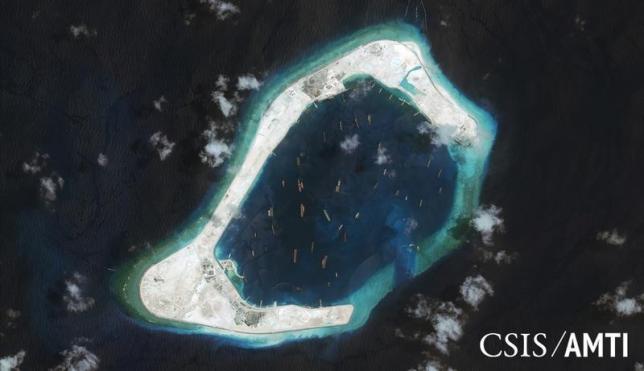China lobbying to drop South China Sea from defense forum statement: US
KUALA LUMPUR: China is lobbying Southeast Asian nations to drop any reference to concerns over the South China Sea in a statement to be issued after regional defense talks in Malaysia, a diplomatic push that reflects growing tension over China's man-made islands.China's push could cast into doubt a signing ceremony traditionally held with ministers of the Association of South East Asian Nations (ASEAN) set for Wednesday afternoon, a senior US defense official said.
"The reason is because the Chinese lobbied to keep any reference to the South China Sea out of the final joint declaration," the senior U.S. defense official said early on Wednesday, on condition of anonymity.
"Understandably a number of ASEAN countries? felt that was inappropriate. It reflects the divide China's reclamation and militarization in the South China Sea has caused in the region."
The US official added, "This was an ASEAN decision but in our view no statement is better than one that avoids the important issue of China's reclamation and militarization in the South China Sea."
Wednesday's gathering brings together the 10 southeast Asian defense ministers, along with ministers from countries such as the Australia, China, India, Japan and the United States.
The meeting, first held in 2006, is a platform to promote regional peace and stability.
Officials this week said the United States and Japan were pushing to get concerns about the South China Sea included in the joint statement. Beijing had made clear as early as February that it didn't want the South China Sea discussed at the meeting, a second senior US defense official said earlier in the week.
Forum host Malaysia has agreed to include a mention of the South China Sea in the final statement, said a Philippine defense official travelling with the defense minister.
The official declined to give specific details but said the Philippines, which traditionally argues for a stronger stance against China's territorial ambitions, was satisfied with the reference."It's better than not having it in the document, but of course we could have a better statement," the official said.
"As of last night, it was there, so we are happy. I hope the South China Sea issue stays there until it is finally issued."
Malaysia is negotiating hard to get an agreement acceptable to both the United States and China, a senior Malaysian official said on Tuesday evening. "Malaysia has to balance it out," said the official, who declined to be identified.
"The defense minister Hishamuddin Hussein has his plan." The meeting is taking place a week after a U.S. warship challenged territorial limits around one of Beijing's man-made islands in the Spratly archipelago with a so-called freedom-of-navigation patrol.
China claims most of the South China Sea, through which more than $5 trillion in global trade passes every year. Vietnam, Malaysia, Brunei, the Philippines and Taiwan have rival claims. U.S. Defense Secretary Ash Carter held a 40-minute meeting with his Chinese counterpart Chang Wanquan on Tuesday at which the two discussed the South China Sea, a third senior U.S. defense official said.
"The Chinese people and military will not stand for any infringements of China's sovereignty and relevant interests," Chang told Carter at the meeting, the Chinese defence ministry said in a statement. "We urge the United States to put a stop to all its mistaken words and deeds, and not take any other dangerous moves which threaten China's sovereignty and security interests," he added.
ASEAN meetings routinely become a venue for countries such as the Philippines and Vietnam to argue for a stronger stance against China's territorial ambitions. Past ASEAN forum statements have made extensive references to the South China Sea issue.
A 2013 communique after a Brunei meeting of ASEAN foreign ministers referred to the importance of "peace, stability, and maritime security in the region" and the resolution of any disputes "by peaceful means in accordance with universally recognised principles of international law."






